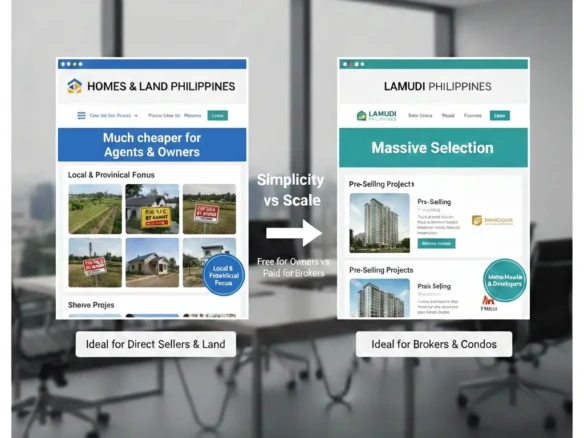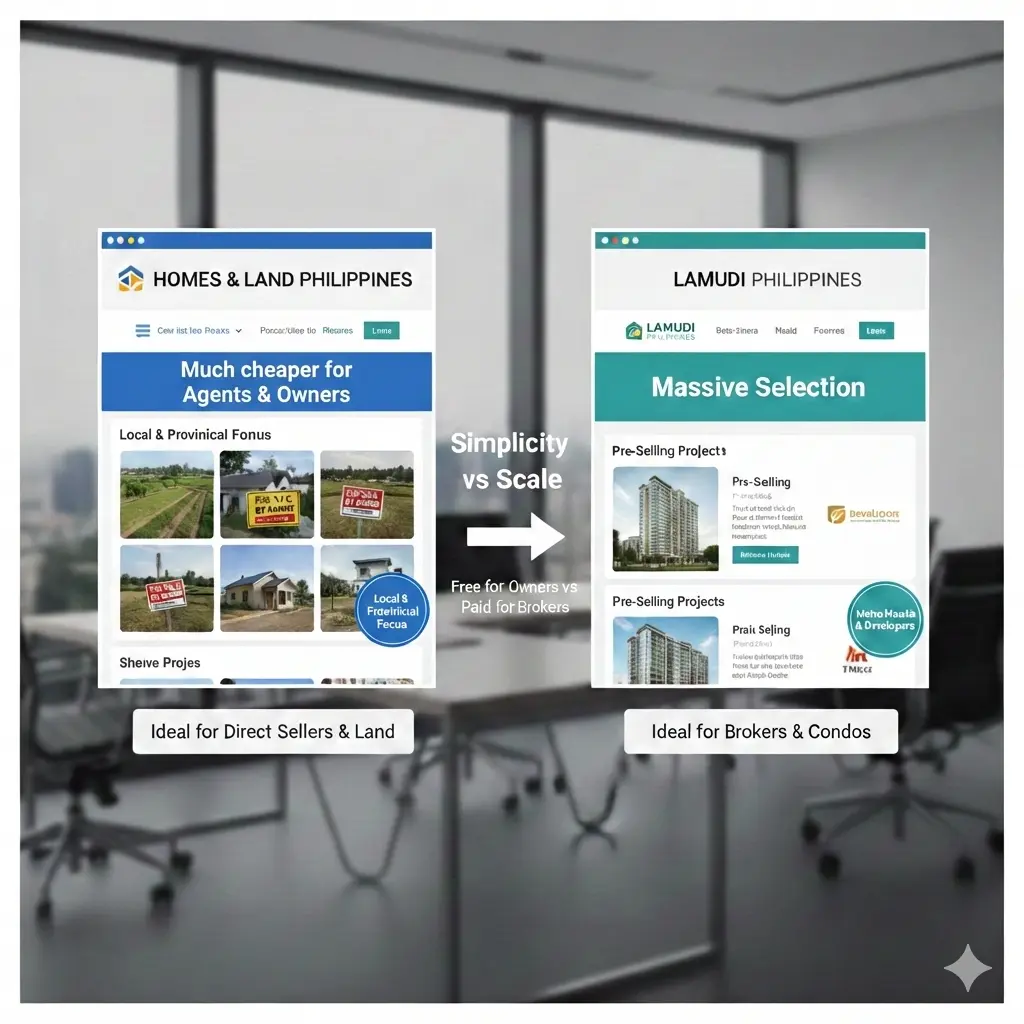- Philippine Real Estate: What You Need to Know to Sell Property in 2025
- 1. Know Why You’re Selling—And Be Honest About It
- 2. Paperwork First—Clean Titles Sell Faster
- 3. Pricing Smart: Look at Actual Sales, Not Just Listings
- 4. Use an Agent or Sell It Yourself?
- 5. Fix What’s Broken. Clean What’s Dirty. Skip the Fancy Renovations
- 6. Know the Costs Before You Commit
- 7. Avoid Mistakes That Scare Buyers
- 8. What’s Selling in 2025?
- Final Thoughts
Philippine Real Estate: What You Need to Know to Sell Property in 2025
Philippine Real Estate is changing—and if you’re planning to sell property soon, 2025 is the perfect time to do it right. Selling a home in the Philippines isn’t as simple as listing it online and waiting for buyers. From paperwork to pricing to buyer behavior, it helps to know what actually works.
If you’ve ever felt lost trying to sell your home—or you just want to avoid delays and low offers—this guide is for you. No fluff. No overcomplicated terms. Just straight-up advice based on real experience in the Philippine real estate market.
1. Know Why You’re Selling—And Be Honest About It
Your reason for selling affects your pricing, timing, and how much you’re willing to negotiate. Are you:
- Relocating to another city?
- Selling a property you inherited?
- Moving abroad for good?
- Just tired of maintaining a vacant home?
Real story: A homeowner in Davao had a small bungalow sitting empty for three years. He priced it based on what he “felt” it was worth. After checking local comps, he adjusted the price by ₱1.5M. It sold in under two months.
2. Paperwork First—Clean Titles Sell Faster
In Philippine real estate, the first thing serious buyers ask about is the paperwork. If you don’t have it ready, expect delays—or worse, no offers.

Basic documents to prepare:
- Original Title (TCT/OTC)
- Tax Declaration (updated)
- Real Property Tax clearance
- Certificate Authorizing Registration (if applicable)
- Valid government-issued IDs
Spouse’s signature is often needed for married sellers. If the property is inherited, you’ll need proof of ownership like an extra judicial settlement.
3. Pricing Smart: Look at Actual Sales, Not Just Listings
Most homes don’t sell because they’re overpriced. In Philippine real estate, buyers check dozens of listings before even contacting you. If your price feels high, they skip it.
Steps to price right:
- Compare actual sales in your barangay or subdivision
- Check condition, floor area, and lot size
- Consider distance to schools, markets, and main roads
Example: Two townhouses in Cavite—same layout. One sold for ₱3.2M. The other listed at ₱3.8M hasn’t sold in over six months.
4. Use an Agent or Sell It Yourself?
You can sell your house with or without a broker. Here’s the difference:
- With an agent: You save time, but they take 3–5% commission
- FSBO (For Sale By Owner): You do all the work but keep all the profit
Real case: A retired OFW posted his Antipolo home online. He got tons of lowball offers and fake inquiries. After hiring a legit broker, it sold in 30 days with clean documents and a fair price.

5. Fix What’s Broken. Clean What’s Dirty. Skip the Fancy Renovations
In Philippine real estate, homes that feel clean and livable sell faster—even if they’re older.
Easy improvements:
- Fix leaks and faulty light switches
- Scrub tiles, floors, and windows
- Remove clutter, especially personal stuff
- Trim the lawn or clean the driveway
You don’t need new tiles or appliances. You just need to make buyers feel like they’re walking into a home—not a project.
What Buyers and Investors Are Saying: SkyscraperCity Forum Insights
A popular discussion over at the SkyscraperCity forum on investing in Philippine real estate points out something that many sellers still overlook: buyers today are more informed than ever. Many of them—especially OFWs and first-time homeowners—spend weeks comparing listings online before they even message a seller. If your ad looks messy, vague, or “too good to be true,” they’ll scroll right past it.
One forum user put it plainly:
“It’s easy to tell when a listing is rushed. If there’s no clear title, no mention of taxes, or the pictures look like they were taken with a potato—pass. I’m not wasting time setting up a tripping if it already looks sketchy ounline.”
This reinforces a key point in the Philippine real estate market today: your online listing is your property’s first impression. Make it count. Include clear details about the lot size, title status, selling price, and fees. Show real photos—not blurry screenshots from Google Maps. Add your contact info. Be upfront.
Why? Because serious buyers aren’t just browsing casually—they’re filtering. They’re eliminating listings that feel risky or incomplete.
6. Know the Costs Before You Commit
Selling a home in the Philippines comes with expenses. Don’t let them surprise you during closing.
Common seller fees:
- Capital Gains Tax – 6% of sale price or zonal value (whichever is higher)
- Notarial fees and registration costs
- Broker commission (if applicable)
- Any unpaid RPT or condo dues
Discuss these with your buyer early. Some fees are negotiable—but only if both sides are clear from the start.
7. Avoid Mistakes That Scare Buyers
Even in a hot Philippine real estate market, sellers lose deals over simple errors.

What to avoid:
- Leaving documents incomplete
- Ghosting interested buyers
- Letting pride or emotion dictate your price
- Refusing to negotiate—even a little
Good buyers move quickly. But they also walk away quickly if they smell trouble.
8. What’s Selling in 2025?
Not all listings move fast—but these do:
- Starter homes in Bulacan, Laguna, and Cavite
- Affordable house-and-lot packages under ₱3.5M
- Units near train stations, schools, and hospitals
- RFO (ready for occupancy) properties
If your listing fits one of these, you’re ahead of the game. If not, just make sure it’s clean, documented, and priced right.

Rent or Buy? What Expats Are Debating Online
Another perspective worth considering comes from the expat community. On the Philippines Expats forum, there’s an ongoing discussion about whether it makes more sense to rent or buy a home in the Philippines—especially for foreigners or balikbayans unsure about long-term plans.
Several users point out that buying property in the Philippines can be tricky for non-citizens due to legal restrictions. Others mention how renting offers flexibility, especially if you’re not 100% sure where you want to settle.
But here’s where it gets interesting for sellers: many expats are still open to buying if the terms are clear and the title is clean. They’re just cautious—and rightfully so.
One commenter wrote:
“If I could find a titled house and lot with no issues, in a decent neighborhood, near the airport—I’d consider buying. But I won’t deal with unclear paperwork or inflated pricing just because I’m a foreigner.”
And it’s not just expats thinking this way. Over on Reddit, users from the r/phinvest community are asking the same thing: Is real estate in the Philippines still attainable?
One user, summed it up honestly:
“The property market here feels like it’s geared more toward high-income earners or foreigners. But there are still spots where pricing makes sense—you just have to look outside Metro Manila.”
Others in the thread echoed that frustration. They noted how property prices have surged ahead of income growth, especially in NCR. Still, there’s cautious optimism around pre-selling deals, suburban areas, and motivated sellers—as long as the listing is clear and realistic.
✅ Takeaway for Sellers:
If your hoouse is titled, fairly priced, and in a decent location—even if it’s not central—you’ve got a real shot. Mention nearby schools, transport hubs, or hospitals. Add clear, current photos. And most of all, be upfront about paperwork. Buyers on platforms like r/phinvest are still searching—they just want to feel like the offer makes sense.
Final Thoughts
Whether you’re in Metro Manila or the provinces, the Philippine real estate scene moves fast—but only if you’re prepared.
Selling isn’t about luck. It’s about clear titles, smart pricing, and honest conversations with buyers. Do that, and you’ll close faster than most.
Need an even simpler breakdown? Check out our related post: Selling Property in the Philippines Made Simple.







Join The Discussion